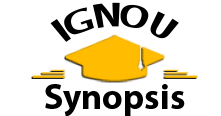In today’s world of “too much” being thrown at us, it becomes more and more difficult to know what is true and what is not. But the consequences of plagiarism in Ignou project can be severe – up to expulsion from school or termination from a job!
What is plagiarism?
Plagiarism is the use of someone else’s work or ideas without giving them credit. It can be intentional or accidental. Intentional plagiarism is when you knowingly use someone else’s work and don’t give them credit. Accidental plagiarism is when you use someone else’s work without realizing it. This is often due to not understanding how to cite sources properly. Both types of plagiarism can be avoided by giving credit to the original author whenever you use their work.
Plagiarism is considered a form of cheating and is usually punishable by academic dishonesty policies. The consequences of plagiarism can be serious. Plagiarism can lead to a loss of points or a failing grade in an assignment or course.
How can you avoid plagiarism?
It is very important to give credit if you are using someone content. When using someone else’s ideas, words, or work, be sure to properly cite your source. If you are unsure how to cite sources, ask your instructor or consult a style guide. When in doubt, err on the side of caution and include a citation.
How can you detect plagiarism?
There are a few ways to detect plagiarism. One way is to search for copied text in a search engine such as Google. If you find the same text appearing on multiple websites, there is a good chance that it has been plagiarized. Another way to detect plagiarism is to use a plagiarism checker such as Copyscape or Plagscan. These tools will scan a document for copied text and flag any instances of possible plagiarism.
What is the difference between appropriation and plagiarism?
There is a big difference between appropriation and plagiarism in Ignou project. Appropriation is when an artist takes something from another artist and uses it in their own work. This can be done with permission or without permission. It is considered to be a form of flattery, and a way to show admiration for another artist. Plagiarism, on the other hand, is taking someone else’s work and passing it off as your own.
How can I avoid plagiarizing someone else’s work?
There are a few things you can do to avoid plagiarizing someone else’s work. If you use someone else’s ideas, make sure to cite them properly. You can also paraphrase or summarize someone else’s work instead of quoting them directly. Lastly, make sure that the work you’re using is in the public domain or that you have permission from the copyright holder to use it.
How can I detect Plagiarism in Ignou Project, Accidental or Deliberate?
Below are the ways to check for plagiarism:
- Use a plagiarism detection tool like Copyscape or PlagScan.
- Check for similar content on the internet using a search engine.
- Compare the content in question with other sources to see if it is similar.
If you suspect that someone has plagiarized your work, you can contact the site or publication where the work was published and request an investigation.
Plagiarism is not a Victimless Crime.
When a student commits plagiarism, they are not only cheating themselves out of a chance to learn and grow academically, but they are also robbing their professor of the opportunity to help them. In short, plagiarism is a form of academic dishonesty that undermines the trust between students and professors and erodes the quality of education.
There are many ways to avoid plagiarism, including citing your sources, using quotation marks, and paraphrasing. If you are unsure about how to avoid plagiarism, ask your professor or consult a style guide.
If you suspect that someone has plagiarized, there are a few ways to check. One is to search for the same phrases or sentences online using a search engine like Google. If you find the same text verbatim elsewhere on the internet, it is likely that it was copied without attribution. Another way to check for plagiarism is to run the text through a plagiarism detection tool like Turnitin or Copyscape. These Pools will scan the internet for instances of identical or similar text and can be used to confirm your suspicions of plagiarism.
Plagiarism in Ignou project is a serious offense that can lead to academic or professional consequences. If you are accused of plagiarism, it is important to understand what it is and how to avoid it. There are a number of ways to detect plagiarism, so if you are suspecting someone of plagiarism, be sure to check for these signs.
